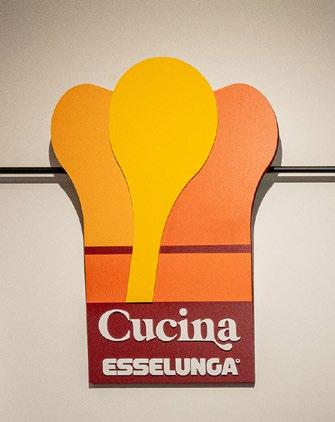
4 minute read
Interview with the industry Icam, the ever-evolving chocolate with international vocation
IT’S NOW GIOVANNI AGOSTONI, GLOBAL SALES & MARKETING DIRECTOR AT ICAM TO TALK WITH PL MAGAZINE.
Icam, the ever-evolving chocolate with international vocation
With its chocolate, it supplies 60% of the international market, while the production for the distribution brands accounts for 40% of the turnover.
By Maria Teresa Giannini
An iconic Italian chocolate company based in Lecco, with 26 thousand tons of cocoa beans bought in 2021 (+4% compared to 2020) and 400 employees, Icam has shown a downward trend for several years now. It started from a 135 million turnover in 2015, and, six years later, closed its 2021 turnover at 189 million euros (+40% since then), with a 12 million increase recorded only in the last year. Actually, since its foundation in 1946, in Morbegno, the world of chocolate processing and market has changed a lot, not to mention the way of being on the market, says Giovanni Agostoni, Global Sales & Marketing Director at Icam.
How has the chocolate market been over the last few years? Chocolate has experienced an internal diversification: greater varieties; then, a growing preference for cocoa rich in solids, seeking ever new and appetizing combinations of different tastes, up to the ‘free-from’ segment, which is continuously growing as it meets specific food needs. Today, Icam is a world leader for its high-quality products and organic references.


26
More than thousands of cocoa beans purchased 400 employees
Founded in 1946 ICAM
3
industrial brands
Sales 60%
foreign market 40%
Italy
189 mln/€
Turnover
(+6,4% since 2020 +40% since 1946)
42%
industrial brands
40%
PLs
18%
confectionary industry
How do you divide your sales between Italian and foreign markets? With our chocolate we supply 60% of the foreign market, which is particularly into the organic and fair-trade cocoa, and 40% of the domestic market. Sales can be attributed to three main business areas, with our company brands and their 42% share standing out (i.e. Vanini, Agostoni and Icam Professional), followed by private labels - predominant in the Italian and international large scale distribution - with 40% and, finally, the semi-finished products for the confectionary industry (18%).
Chocolate is king in pastry-making , but, in a difficult period like the one we’re living in, many Italians and Europeans could do without it. What consequences would such a change in consumer habits have? This scenario, confirmed in these last weeks, has deeply changed since the first months of the year, when we recorded an increase in high quality and organic product consumption. However, there is considerable uncertainty over crucial issues such as the war in Ukraine and international resolutions on the energy price cap. Plus, the inflation level is likely to remain high and continue to affect the shopping basket.
The question of energy and that of the procurement of materials for packaging is affecting prices, especially in energy-intensive companies. To which extent does it impact you? Because of the scarcity of raw materials and the rising costs of energy, we, as many other companies, had to apply some price increases. We did it only after doing our best to keep them as low as possible. For example, we negotiated with the paper mills that supply us with the packaging materials, with the aim of minimizing the impact on production. As far as energy is concerned, due to our trigeneration unit we can produce a relevant amount of the energy supply we need. However, the overall increase in energy costs is a huge problem that cannot be born in the middle-long term.

How much and how do you invest in sustainability (environmentally and socially)? Sustainability has always been a key factor for our company, which is also reflected in our motto ‘Chocolate By Nature’. Our new corporate identity is based on four pillars: supply chain, environment, people and innovation. Take Uganda Bio bars, for example, they’re entirely made of cocoa produced in Uganda. Thanks to our collaboration with local farmers, in fact, the whole process of cultivation, harvest, fermentation, drying and processing of cocoa beans is locally made, ensuring unique organoleptic properties. The packaging of the Uganda bars is the first compostable pack made in Italy in the chocolate industry, by using paper and a patented biopolimer, composed of corn-based biomass. Thus, the packaging is 80% made of renewable and compostable raw materials, according to the industrial waste disposal regulations (disposed as organic waste in Italy).

News for 2023? The industrial plan includes big investments, both technological and non, to boost company innovation with: the purchase of new machines, in order to diversify and further increase production; structural expansions of the plant; and the creation of the Innovation Center, connected to our training hub ChocoCube, which will turn into a laboratory for pastry technicians to create new recipes designed for industry professionals. At the same time, the R&D department will study and experiment new combinations, to guarantee an increasingly innovative and up-to-date supply.l








